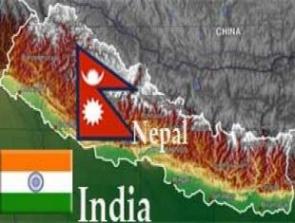India-Nepal security talks focus on open border, extradition
 Kathmandu, Nov 6 : India and Nepal Friday began bilateral talks in Kathmandu to enhance security cooperation, focusing on the management of the open border between the two neighbours, an updated extradition treaty and training Nepal's police forces.
Kathmandu, Nov 6 : India and Nepal Friday began bilateral talks in Kathmandu to enhance security cooperation, focusing on the management of the open border between the two neighbours, an updated extradition treaty and training Nepal's police forces.
Indian Home Secretary G. K. Pillai is leading a 10-member delegation of security officials while the Nepal side is headed by Home Secretary Govinda Kusum.
The two-day talks are the fruit of Nepal Prime Minister Madhav Kumar Nepal's official visit to India in August when during his meeting with Indian premier Manmohan Singh both sides discussed security concerns relating to the nearly 1,800-km open border.
They agreed that the Bilateral Consultative Group on Security Issues and the home secretaries of the two countries would meet soon to enhance bilateral cooperation concerning security.
The two delegations will be discussing cross-border crime, especially trafficking and the circulation of fake Indian currency as well as the smuggling of arms.
To tackle this effectively, they are discussing establishing effective communication links between and along the bordering districts to further facilitate the exchange of information.
While India is keen to sign at the earliest a revised extradition treaty with Nepal as well as a new pact on mutual legal assistance, the two sides will discuss the issue but stop short at inking an agreement.
This is due to the period of transition in Nepal with the government's mandate being to draft a new constitution but not to sign treaties of national importance without the consensus of the major political parties.
The Maoists, who have resumed protests against the coalition government, delivered a warning Thursday not to ink an agreement on extradition. The signing of a new border map that will end all border disputes is also not feasible in the current political situation.
The Indo-Nepal Extradition Treaty was first signed in 1855 and revised in 1953. India is pressing for a new treaty to keep up with the changing times and looking at the inclusion of a clause for the deportation of third-country nationals wanted for terrorism, crime and economic offences.
However, both sides are expecting progress in talks to strengthen the Border Coordination Committee and also Nepal's police and Armed Police Force.
India has pledged Rs. 3,200 million to build a police academy in Panauti and the two-day talks could lead to a date for the signing of a memorandum of understanding. (IANS)